- Home
- Alexandre Dumas
Ten Years Later Page 11
Ten Years Later Read online
Page 11
This officer, who was sleeping, or preparing to sleep, was,notwithstanding his careless air, charged with a serious responsibility.
Lieutenant of the king's musketeers, he commanded all the company whichcame from Paris, and that company consisted of a hundred and twenty men;but, with the exception of the twenty of whom we have spoken, the otherhundred were engaged in guarding the queen-mother, and more particularlythe cardinal.
Monsignor Giulio Mazarini economized the traveling expenses of hisguards; he consequently used the king's, and that largely, since he tookfifty of them for himself--a peculiarity which would not have failed tostrike any one unacquainted with the usages of that court.
That which would still further have appeared, if not inconvenient, atleast extraordinary, to a stranger, was, that the side of the castledestined for monsieur le cardinal was brilliant, light and cheerful. Themusketeers there mounted guard before every door, and allowed no one toenter, except the couriers, who, even while he was traveling, followedthe cardinal for the carrying on of his correspondence.
Twenty men were on duty with the queen-mother; thirty rested, in orderto relieve their companions the next day.
On the king's side, on the contrary, were darkness, silence, andsolitude. When once the doors were closed, there was no longer anappearance of royalty. All the servitors had by degrees retired.Monsieur le Prince had sent to know if his majesty required hisattendance; and on the customary "No" of the lieutenant of musketeers,who was habituated to the question and the reply, all appeared to sinkinto the arms of sleep, as if in the dwelling of a good citizen.
And yet it was possible to hear from the side of the house occupied bythe young king the music of the banquet, and to see the windows of thegreat hall richly illuminated.
Ten minutes after his installation in his apartment, Louis XIV. had beenable to learn, by movement much more distinguished than marked his ownleaving, the departure of the cardinal, who, in his turn, sought hisbedroom, accompanied by a large escort of ladies and gentlemen.
Besides, to perceive this movement, he had nothing to do but to look outat his window, the shutters of which had not been closed.
His eminence crossed the court, conducted by Monsieur, who himself helda flambeau, then followed the queen-mother, to whom Madame familiarlygave her arm; and both walked chatting away, like two old friends.
Behind these two couples filed nobles, ladies, pages and officers; theflambeaux gleamed over the whole court, like the moving reflections ofa conflagration. Then the noise of steps and voices became lost in theupper floors of the castle.
No one was then thinking of the king, who, leaning on his elbow at hiswindow, had sadly seen pass away all that light, and heard that noisedie off--no, not one, if it was not that unknown of the hostelry desMedici, whom we have seen go out, enveloped in his cloak.
He had come straight up to the castle, and had, with his melancholycountenance, wandered round and round the palace, from which thepeople had not yet departed; and finding that no one guarded the greatentrance, or the porch, seeing that the soldiers of Monsieur werefraternizing with the royal soldiers--that is to say swallowingBeaugency at discretion, or rather indiscretion--the unknown penetratedthrough the crowd, then ascended to the court, and came to the landingof the staircase leading to the cardinal's apartment.
What, according to all probability, induced him to direct his steps thatway, was the splendor of the flambeaux, and the busy air of the pagesand domestics. But he was stopped short by a presented musket and thecry of the sentinel.
"Where are you going, my friend?" asked the soldier.
"I am going to the king's apartment," replied the unknown, haughtily,but tranquilly.
The soldier called one of his eminence's officers, who, in the tonein which a youth in office directs a solicitor to a minister, let fallthese words: "The other staircase, in front."
And the officer, without further notice of the unknown, resumed hisinterrupted conversation.
The stranger, without reply, directed his steps towards the staircasepointed out to him. On this side there was no noise, there were no moreflambeaux.
Obscurity, through which a sentinel glided like a shadow; silence, whichpermitted him to hear the sound of his own footsteps, accompanied withthe jingling of his spurs upon the stone slabs.
This guard was one of the twenty musketeers appointed for attendanceupon the king, and who mounted guard with the stiffness andconsciousness of a statue.
"Who goes there?" said the guard.
"A friend," replied the unknown.
"What do you want?"
"To speak to the king."
"Do you, my dear monsieur? That's not very likely."
"Why not?"
"Because the king has gone to bed."
"Gone to bed already?"
"Yes."
"No matter: I must speak to him."
"And I tell you that is impossible."
"And yet----"
"Go back!"
"Do you require the word?"
"I have no account to render to you. Stand back!"
And this time the soldier accompanied his word with a threateninggesture; but the unknown stirred no more than if his feet had takenroot.
"Monsieur le mousquetaire," said he, "are you a gentleman?"
"I have that honor."
"Very well! I also am one, and between gentlemen some considerationought to be observed."
The soldier lowered his arms, overcome by the dignity with which thesewords were pronounced.
"Speak, monsieur," said he; "and if you ask me anything in my power----"
"Thank you. You have an officer, have you not?"
"Our lieutenant? Yes, monsieur."
"Well, I wish to speak to him."
"Oh, that's a different thing. Come up, monsieur."
The unknown saluted the soldier in a lofty fashion, and ascendedthe staircase; whilst a cry, "Lieutenant, a visit!" transmitted fromsentinel to sentinel, preceded the unknown, and disturbed the slumbersof the officer.
Dragging on his boots, rubbing his eyes, and hooking his cloak, thelieutenant made three steps towards the stranger.
"What can I do to serve you, monsieur?" asked he.
"You are the officer on duty, lieutenant of the musketeers, are you?"
"I have that honor," replied the officer.
"Monsieur, I must absolutely speak to the king."
The lieutenant looked attentively at the unknown, and in that look,however rapid, he saw all he wished to see--that is to say, a person ofhigh distinction in an ordinary dress.
"I do not suppose you to be mad," replied he; "and yet you seem to me tobe in a condition to know, monsieur, that people do not enter a king'sapartments in this manner without his consent."
"He will consent."
"Monsieur, permit me to doubt that. The king has retired this quarter ofan hour; he must be now undressing. Besides, the word is given."
"When he knows who I am, he will recall the word."
The officer was more and more surprised, more and more subdued.
"If I consent to announce you, may I at least know whom to announce,monsieur?"
"You will announce His Majesty Charles II., King of England, Scotland,and Ireland."
The officer uttered a cry of astonishment, drew back, and there might beseen upon his pallid countenance one of the most poignant emotions thatever an energetic man endeavored to drive back to his heart.
"Oh, yes, sire; in fact," said he, "I ought to have recognized you."
"You have seen my portrait, then?"
"No, sire."
"Or else you have seen me formerly at court, before I was driven fromFrance?"
"No, sire, it is not even that."
"How then could you have recognized me, if you have never seen myportrait or my person?"
"Sire, I saw his majesty your father at a terrible moment."
"The day----"
"Yes."
A dark cloud passed ov
er the brow of the prince; then, dashing his handacross it, "Do you still see any difficulty in announcing me?" said he.
"Sire, pardon me," replied the officer, "but I could not imagine aking under so simple an exterior; and yet I had the honor to tell yourmajesty just now that I had seen Charles I. But pardon me, monsieur; Iwill go and inform the king."
But returning after going a few steps, "Your majesty is desirous,without doubt, that this interview should be a secret?" said he.
"I do not require it; but if it were possible to preserve it----"
"It is possible, sire, for I can dispense with informing the firstgentleman on duty; but, for that, your majesty must please to consent togive up your sword."
"True, true; I had forgotten that no one armed is permitted to enter thechamber of a king of France."
"Your majesty will form an exception, if you wish it; but then I shallavoid my responsibility by informing the king's attendant."
"Here is my sword, monsieur. Will you now please to announce me to hismajesty?"
"Instantly, sire." And the officer immediately went and knocked at thedoor of communication, which the valet opened to him.
"His Majesty the King of England!" said the officer.
"His Majesty the King of England!" replied the valet de chambre.
At these words a gentleman opened the folding-doors of the king'sapartment, and Louis XIV. was seen, without hat or sword, and hispourpoint open, advancing with signs of the greatest surprise.
"You, my brother--you at Blois!" cried Louis XIV., dismissing with agesture both the gentleman and the valet de chambre, who passed out intothe next apartment.
"Sire," replied Charles II., "I was going to Paris, in the hope ofseeing your majesty, when report informed me of your approaching arrivalin this city. I therefore prolonged my abode here, having something veryparticular to communicate to you."
"Will this closet suit you, my brother?"
"Perfectly well, sire; for I think no one can hear us here."
"I have dismissed my gentleman and my watcher; they are in the nextchamber. There, behind that partition, is a solitary closet, lookinginto the ante-chamber, and in that ante-chamber you found nobody but asolitary officer, did you?"
"No, sire."
"Well, then, speak, my brother; I listen to you."
"Sire, I commence, and entreat your majesty to have pity on themisfortunes of our house."
The king of France colored, and drew his chair closer to that of theking of England.
"Sire," said Charles II., "I have no need to ask if your majesty isacquainted with the details of my deplorable history."
Louis XIV. blushed, this time more strongly than before; then,stretching forth his hand to that of the king of England, "My brother,"said he, "I am ashamed to say so, but the cardinal scarcely ever speaksof political affairs before me. Still more, formerly I used to getLaporte, my valet de chambre, to read historical subjects to me, but heput a stop to these readings, and took away Laporte from me. So thatI beg my brother Charles to tell me all those matters as to a man whoknows nothing."
"Well, sire, I think that by taking things from the beginning I shallhave a better chance of touching the heart of your majesty."
"Speak on, my brother--speak on."
"You know, sire, that being called in 1650 to Edinburgh, duringCromwell's expedition into Ireland, I was crowned at Scone. A yearafter, wounded in one of the provinces he had usurped, Cromwell returnedupon us. To meet him was my object; to leave Scotland was my wish."
"And yet," interrupted the young king, "Scotland is almost your nativecountry, is it not, my brother?"
"Yes; but the Scots were cruel compatriots for me, sire; they had forcedme to forsake the religion of my fathers; they had hung Lord Montrose,the most devoted of my servants, because he was not a Covenanter; and asthe poor martyr, to whom they had offered a favor when dying, had askedthat his body might be cut into as many pieces as there are citiesin Scotland, in order that evidence of his fidelity might be met witheverywhere, I could not leave one city, or go into another, withoutpassing under some fragments of a body which had acted, fought, andbreathed for me.
"By a bold, almost desperate march, I passed through Cromwell's army,and entered England. The Protector set out in pursuit of this strangeflight, which had a crown for its object. If I had been able to reachLondon before him, without doubt the prize of the race would have beenmine; but he overtook me at Worcester.
"The genius of England was no longer with us, but with him. On the 5thof September, 1651, sire, the anniversary of the other battle of Dunbar,so fatal to the Scots, I was conquered. Two thousand men fell around mebefore I thought of retreating a step. At length I was obliged to fly.
"From that moment my history became a romance. Pursued with persistentinveteracy, I cut off my hair, I disguised myself as a woodman. One dayspent amidst the branches of an oak gave to that tree the name of theroyal oak, which it bears to this day. My adventures in the county ofStafford, whence I escaped with the daughter of my host on a pillionbehind me, still fill the tales of the country firesides, and wouldfurnish matter for ballads. I will some day write all this, sire, forthe instruction of my brother kings.
"I will first tell how, on arriving at the residence of Mr. Norton,I met with a court chaplain, who was looking on at a party playing atskittles, and an old servant who named me, bursting into tears, and whowas as near and as certainly killing me by his fidelity as another mighthave been by treachery. Then I will tell of my terrors--yes, sire, ofmy terrors--when, at the house of Colonel Windham, a farrier who came toshoe our horses declared they had been shod in the north."
"How strange!" murmured Louis XIV. "I never heard anything of all that;I was only told of your embarkation at Brighthelmstone and your landingin Normandy."
"Oh!" exclaimed Charles, "if Heaven permits kings to be thus ignorantof the histories of each other, how can they render assistance to theirbrothers who need it?"
"But tell me," continued Louis XIV., "how, after being so roughlyreceived in England, you can still hope for anything from that unhappycountry and that rebellious people?"
"Oh, sire! since the battle of Worcester, everything is changed there.Cromwell is dead, after having signed a treaty with France, in whichhis name is placed above yours. He died on the 5th of September, 1658, afresh anniversary of the battles of Dunbar and Worcester."
"His son has succeeded him."
"But certain men have a family, sire, and no heir. The inheritance ofOliver was too heavy for Richard. Richard was neither a republican nor aroyalist; Richard allowed his guards to eat his dinner, and his generalsto govern the republic; Richard abdicated the protectorate on the 22ndof April, 1659, more than a year ago, sire.
"From that time England is nothing but a tennis-court, in which theplayers throw dice for the crown of my father. The two most eagerplayers are Lambert and Monk. Well, sire, I, in my turn, wish to takepart in this game, where the stakes are thrown upon my royal mantle.Sire, it only requires a million to corrupt one of these players andmake an ally of him, or two hundred of your gentlemen to drive them outof my palace at Whitehall, as Christ drove the money-changers from thetemple."
"You come, then," replied Louis XIV., "to ask me----"
"For your assistance, that is to say, not only for that which kings oweto each other, but that which simple Christians owe to each other--yourassistance, sire, either in money or men. Your assistance, sire, andwithin a month, whether I oppose Lambert to Monk, or Monk to Lambert, Ishall have reconquered my paternal inheritance, without having cost mycountry a guinea, or my subjects a drop of blood, for they are now alldrunk with revolutions, protectorates, and republics, and ask nothingbetter than to fall staggering to sleep in the arms of royalty. Yourassistance, sire, and I shall owe you more than I owe my father,--mypoor father, who bought at so dear a rate the ruin of our house! You mayjudge, sire, whether I am unhappy, whether I am in despair, for I accusemy own father!"
And the blood mounte
d to the pale face of Charles II., who remained foran instant with his head between his hands, and as if blinded by thatblood which appeared to revolt against the filial blasphemy.
The young king was not less affected than his elder brother; he threwhimself about in his fauteuil, and could not find a single word ofreply.
Charles II., to whom ten years in age gave a superior strength to masterhis emotions, recovered his speech the first.
"Sire," said he, "your reply? I wait for it as a criminal waits for hissentence. Must I die?"
"My brother," replied the French prince, "you ask me for a million--me,who was never possessed of a quarter of that sum! I possess nothing. Iam no more king of France than you are king of England. I am a name,a cipher dressed in fleur-de-lised velvet,--that is all. I am upon avisible throne; that is my only advantage over your majesty. I havenothing--I can do nothing."
"Can it be so?" exclaimed Charles II.
"My brother," said Louis, sinking his voice, "I have undergone miserieswith which my poorest gentlemen are unacquainted. If my poor Laportewere here, he would tell you that I have slept in ragged sheets,through the holes of which my legs have passed; he would tell you thatafterwards, when I asked for carriages, they brought me conveyanceshalf-destroyed by the rats of the coach-houses; he would tell you thatwhen I asked for my dinner, the servants went to the cardinal's kitchento inquire if there were any dinner for the king. And look! to-day, thisvery day even, when I am twenty-two years of age,--to-day, when I haveattained the grade of the majority of kings,--to-day, when I ought tohave the key of the treasury, the direction of the policy, the supremacyin peace and war,--cast your eyes around me, see how I am left! Lookat this abandonment--this disdain--this silence!--Whilst yonder--lookyonder! View the bustle, the lights, the homage! There!--there you seethe real king of France, my brother!
"In the cardinal's apartments?"
"Yes, in the cardinal's apartments."
"Then I am condemned, sire?"
Louis XIV. made no reply.
"Condemned is the word; for I will never solicit him who left my motherand sister to die with cold and hunger--the daughter and grand-daughterof Henry IV.--if M. de Retz and the parliament had not sent them woodand bread."
"To die?" murmured Louis XIV.
"Well!" continued the king of England, "poor Charles II., grandson ofHenry IV. as you are, sire, having neither parliament nor Cardinalde Retz to apply to, will die of hunger, as his mother and sister hadnearly done."
Louis knitted his brow, and twisted violently the lace of his ruffles.
This prostration, this immobility, serving as a mark to an emotion sovisible, struck Charles II., and he took the young man's hand.
"Thanks!" said he, "my brother. You pity me, and that is all I canrequire of you in your present situation."
"Sire," said Louis XIV., with a sudden impulse, and raising his head,"it is a million you require, or two hundred gentlemen, I think yousay?"
"Sire, a million would be quite sufficient."
"That is very little."
"Offered to a single man it is a great deal. Convictions have beenpurchased at a much lower price; and I should have nothing to do butwith venalities."
"Two hundred gentlemen! Reflect!--that is little more than a singlecompany."
"Sire, there is in our family a tradition, and that is, that four men,four French gentlemen, devoted to my father, were near saving my father,though condemned by a parliament, guarded by an army and surrounded by anation."
"Then if I can procure you a million, or two hundred gentlemen, you willbe satisfied; and you will consider me your well-affectioned brother?"
"I shall consider you as my saviour; and if I recover the throne ofmy father, England will be, as long as I reign at least, a sister toFrance, as you will have been a brother to me."
"Well, my brother," said Louis, rising, "what you hesitate to ask for,I will myself demand; that which I have never done on my own account, Iwill do on yours. I will go and find the king of France--the other--therich, the powerful one, I mean. I will myself solicit this million, orthese two hundred gentlemen; and--we will see."
"Oh!" cried Charles, "you are a noble friend, sire--a heart created byGod! You save me, my brother; and if you should ever stand in need ofthe life you restore me, demand it."
"Silence, my brother,--silence!" said Louis, in a suppressed voice."Take care that no one hears you! We have not obtained our end yet.To ask money of Mazarin--that is worse than traversing the enchantedforest, each tree of which inclosed a demon. It is more than setting outto conquer a world."
"But yet, sire, when you ask it----"
"I have already told you that I never asked," replied Louis with ahaughtiness that made the king of England turn pale.
And as the latter, like a wounded man, made a retreatingmovement--"Pardon me, my brother," replied he. "I have neither a mothernor a sister who are suffering. My throne is hard and naked, but I amfirmly seated on my throne. Pardon me that expression, my brother; itwas that of an egotist. I will retract it, therefore, by a sacrifice,--Iwill go to monsieur le cardinal. Wait for me, if you please--I willreturn."
CHAPTER 10. The Arithmetic of M. de Mazarin

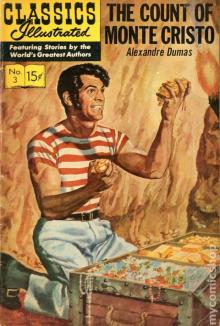 The Count of Monte Cristo, Illustrated
The Count of Monte Cristo, Illustrated Knight of Maison-Rouge
Knight of Maison-Rouge![The Three Musketeers - Alexandre Dumas - [Full Version] - (ANNOTATED) Read online](http://i1.bookreadfree.com/14/the_three_musketeers_-_alexandre_dumas_-_[full_version]_-_annotated_preview.jpg) The Three Musketeers - Alexandre Dumas - [Full Version] - (ANNOTATED)
The Three Musketeers - Alexandre Dumas - [Full Version] - (ANNOTATED)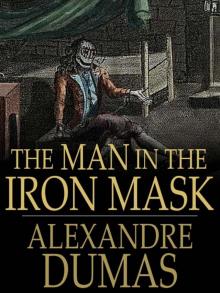 The Man in the Iron Mask
The Man in the Iron Mask The Count of Monte Cristo (Penguin Classics eBook)
The Count of Monte Cristo (Penguin Classics eBook)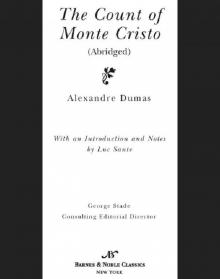 Count of Monte Cristo (abridged) (Barnes & Noble Classics Series)
Count of Monte Cristo (abridged) (Barnes & Noble Classics Series) The Women's War
The Women's War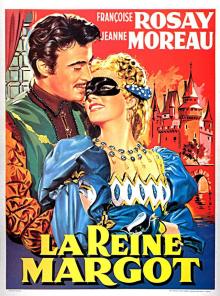 La reine Margot. English
La reine Margot. English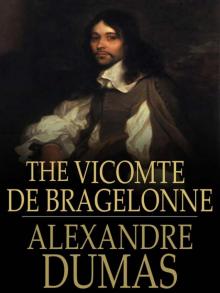 The Vicomte de Bragelonne
The Vicomte de Bragelonne__english_preview.jpg) La dame aux camélias (Novel). English
La dame aux camélias (Novel). English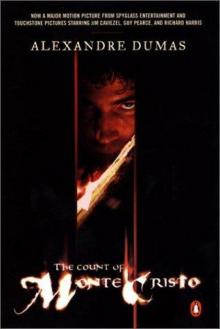 The Count of Monte Cristo
The Count of Monte Cristo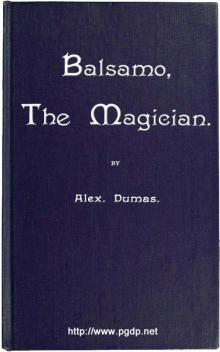 Balsamo, the Magician; or, The Memoirs of a Physician
Balsamo, the Magician; or, The Memoirs of a Physician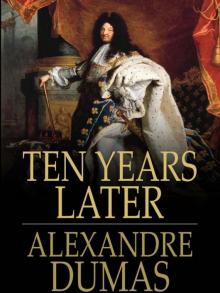 Ten Years Later
Ten Years Later The Romance of Violette
The Romance of Violette The Mesmerist's Victim
The Mesmerist's Victim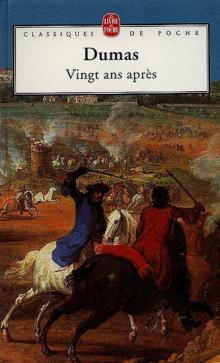 Vingt ans après. English
Vingt ans après. English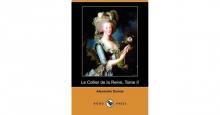 Le collier de la reine. English
Le collier de la reine. English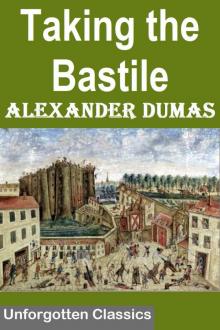 Taking the Bastile; Or, Pitou the Peasant
Taking the Bastile; Or, Pitou the Peasant The Hero of the People: A Historical Romance of Love, Liberty and Loyalty
The Hero of the People: A Historical Romance of Love, Liberty and Loyalty Louise de la Valliere
Louise de la Valliere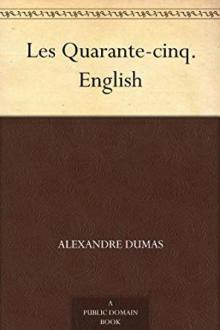 Les Quarante-cinq. English
Les Quarante-cinq. English Ange Pitou (Volume 1)
Ange Pitou (Volume 1) The Royal Life Guard; or, the flight of the royal family.
The Royal Life Guard; or, the flight of the royal family.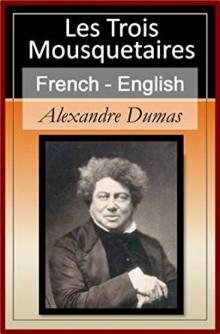 Les trois mousquetaires. English
Les trois mousquetaires. English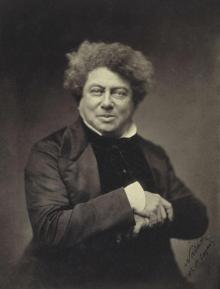 Une fille du régent. English
Une fille du régent. English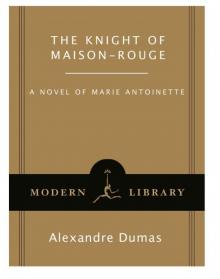 The Knight of Maison-Rouge
The Knight of Maison-Rouge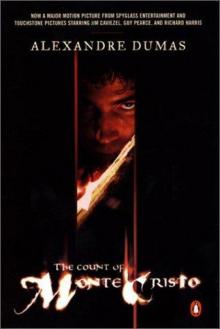 The Count of Monte Cristo (Unabridged Penguin)
The Count of Monte Cristo (Unabridged Penguin) Ange Pitou
Ange Pitou The Romance of Violette (vintage erotica)
The Romance of Violette (vintage erotica)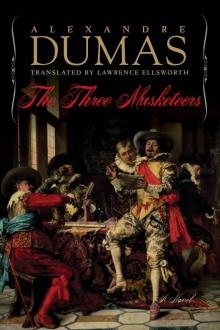 The Three Musketeers
The Three Musketeers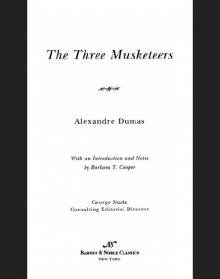 Three Musketeers (Barnes & Noble Classics Series)
Three Musketeers (Barnes & Noble Classics Series)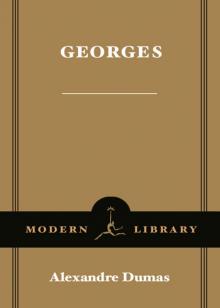 Georges
Georges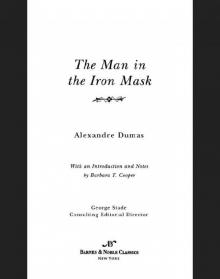 Man in the Iron Mask (Barnes & Noble Classics Series)
Man in the Iron Mask (Barnes & Noble Classics Series)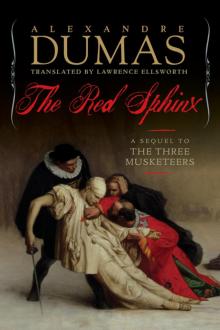 The Red Sphinx
The Red Sphinx